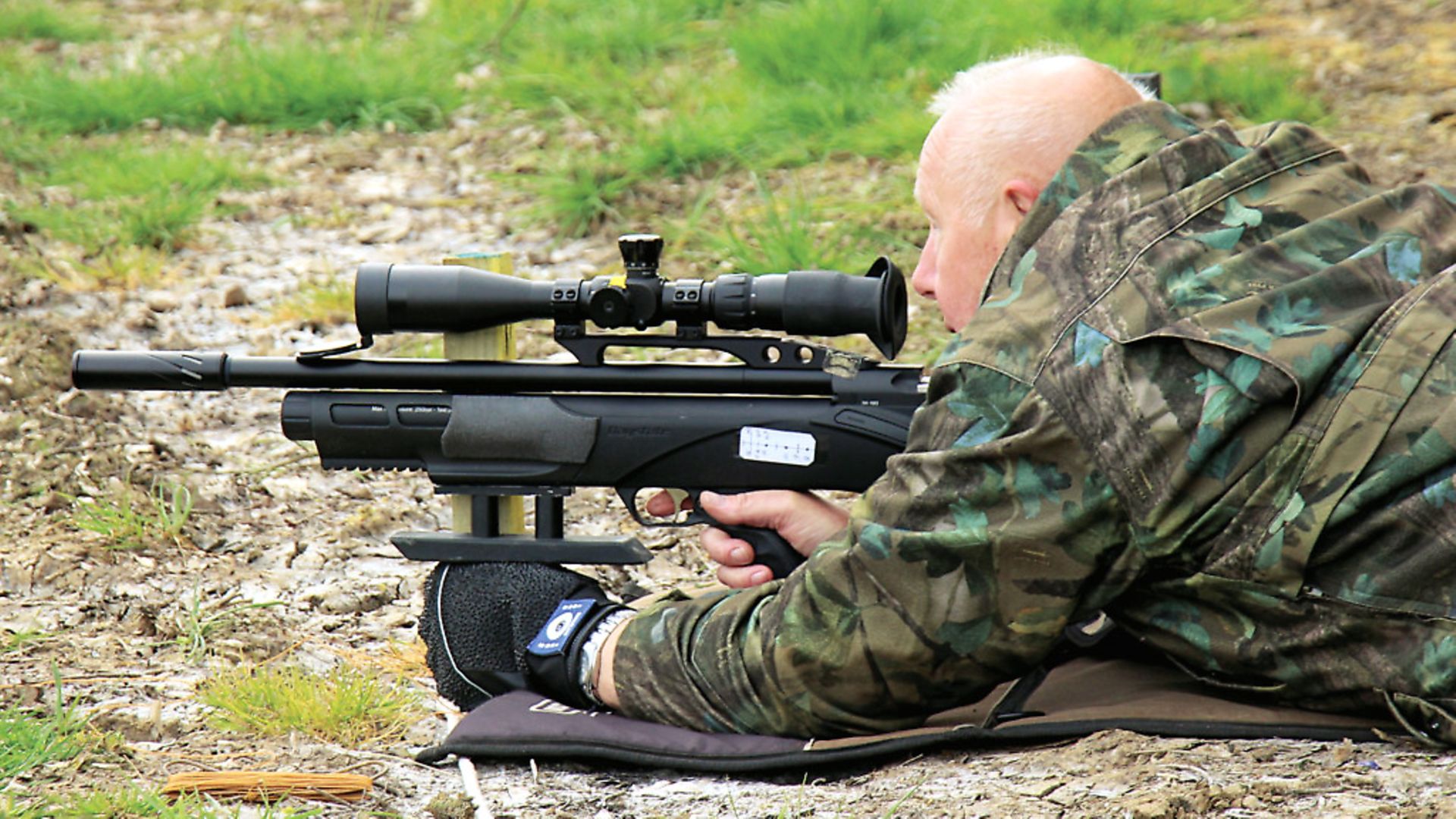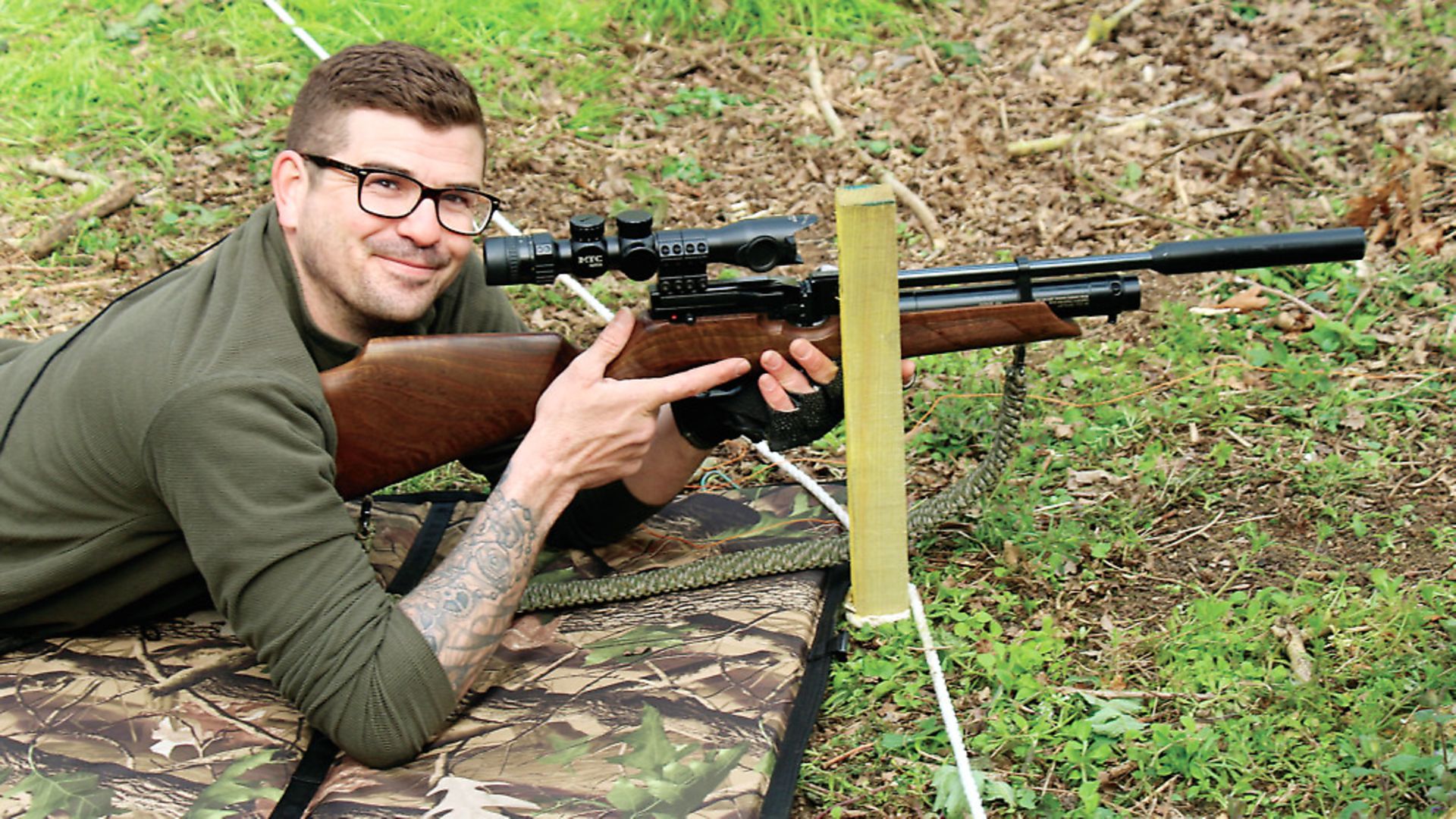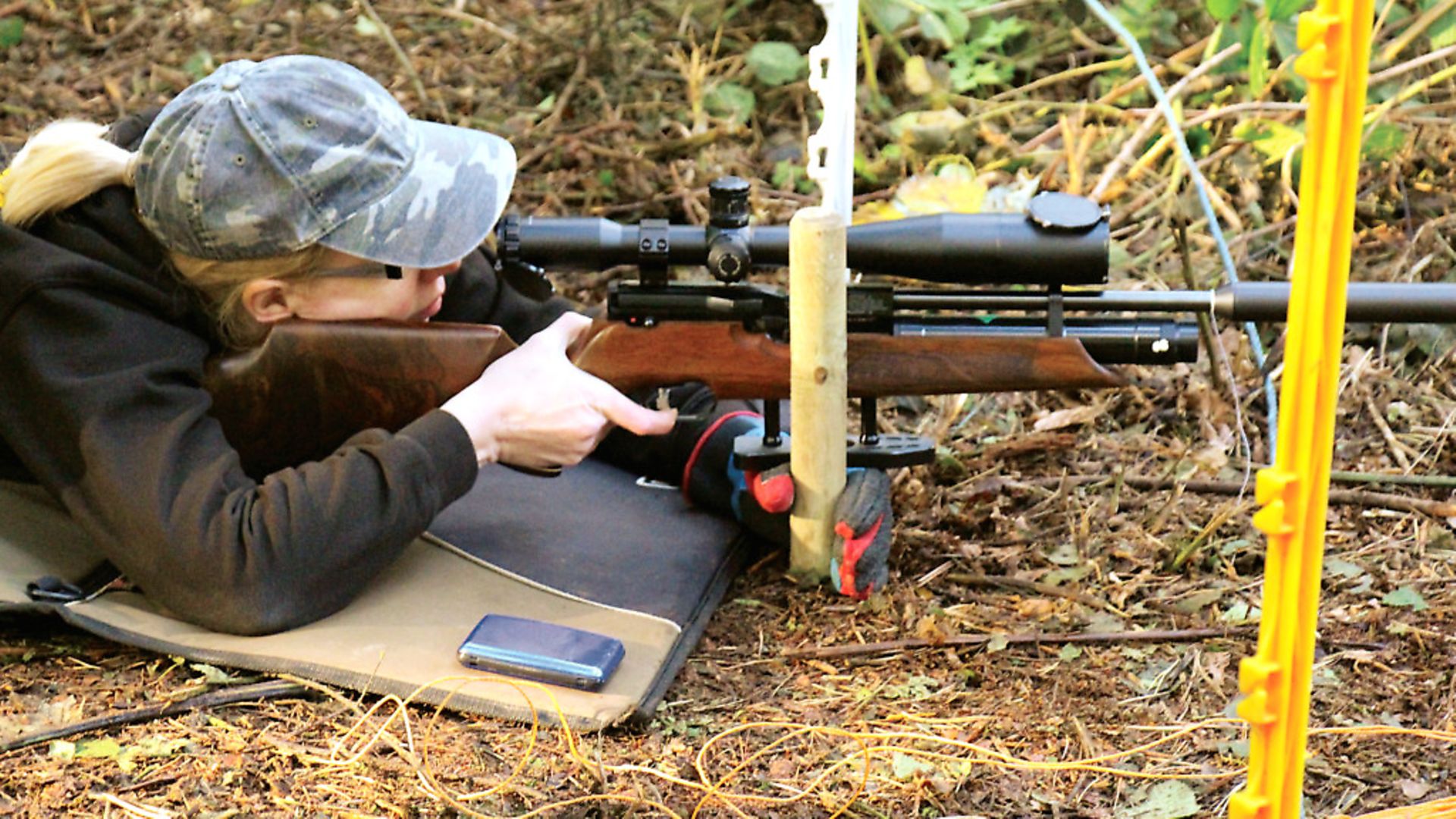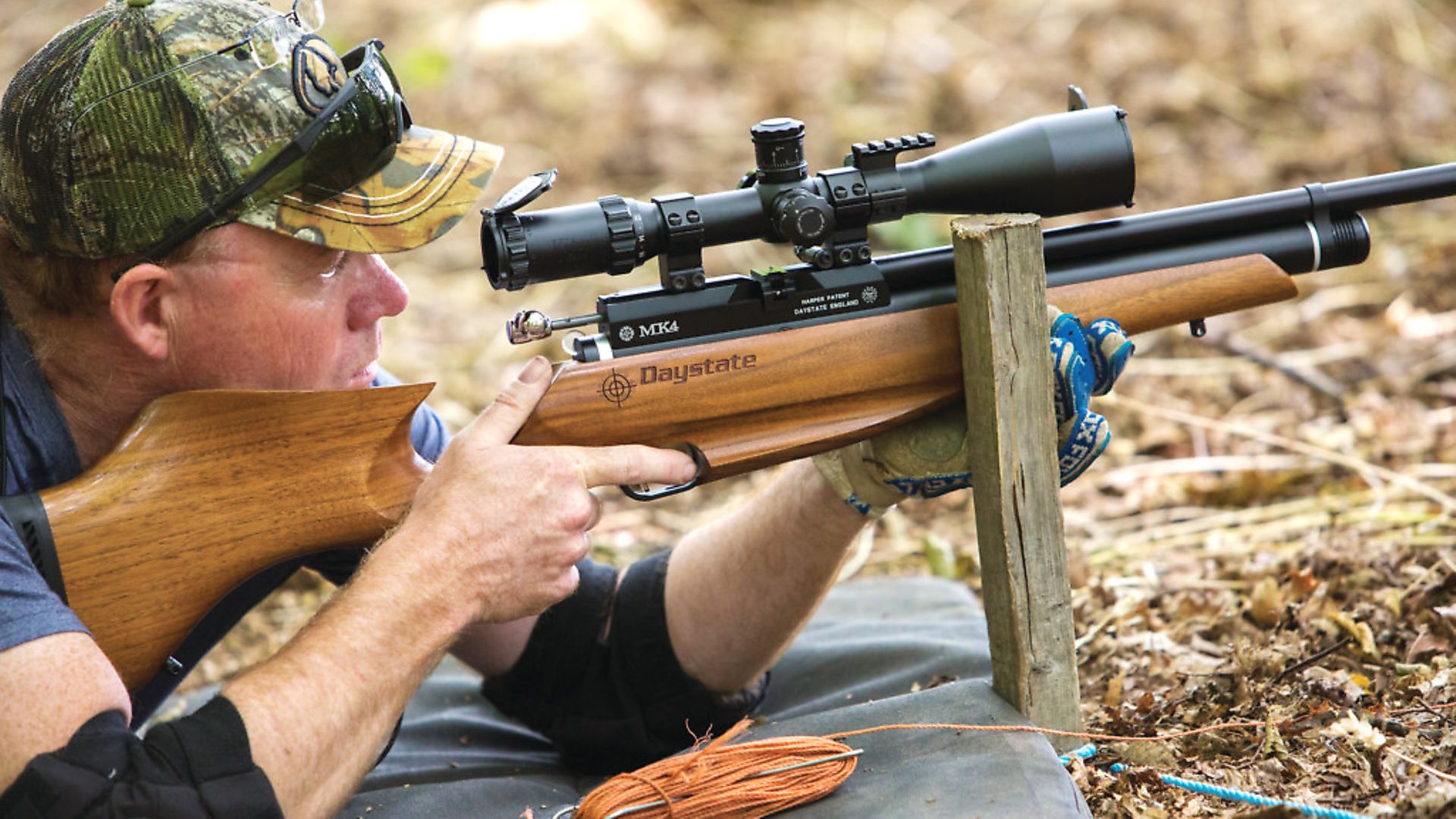Gary Chillingworth helps us decide which rifle is best for us

credit: ArchantBack in 2014, I wrote a series called ‘Beginners to Winners’, designed to help new shooters coming into the sport to improve their skills, and to pass on the knowledge that I have learned from the shooters around me. In a recent chat with Phill, the editor, he suggested that I could revisit this series because there are many new shooters coming into the sport every year and not everyone has access to old copies of Air Gunner.
Between you and me, though, I think he was just getting a bit sick and tired of me banging on about my new love of spring guns. So, to kick things off, I thought we could look at purchasing your first rifle, what you should look for and how to identify what type of shooter you are.
Before you go out and spend your hard-earned money, it’s a good idea to take some time to consider what you want to do with your rifle. I am assuming that the vast majority of us are not thinking about taking up 10-metre shooting, or high-level bench rest, because this can be very expensive and very niche, but if you would like some more information about it, drop me a line at garychillingworth36@gmail.com and I’ll cover it later in the year.
In my mind, there are three popular types of shooting; plinking, outdoor target competitions such as Field Target and Hunter Field Target (HFT and FT), and hunting – and there are sub-categories within each of these types. So to get going and take a look at garden plinking.

credit: ArchantPlinking
I’m going to keep this brief because, starting next month, Air Gunner will have a writer who is going to look into plinking in a big way, and I don’t want to tread on his toes. However, I have to cover the basics. If your plan is to stay in the garden and shoot a few targets out to 20 yards, there is no point in spending thousands of pounds on a top-of-the line rifle. It would be like buying a Formula One car to take on a go-cart track, and even though you will have a lot of fun, you will get bored very easily.
Even a rifle like an Air Arms S400 will shoot a single whole group at 30 yards, so if you just want to have a garden plink, a rifle like a Gamo Whisper X is perfect. This entry-level spring gun can punch well above its weight and will give you hours of fun in the back garden and won’t break the bank. It will teach you trigger control and how to hold a rifle correctly, and it is possible to shoot some very good groups. Just remember, if you are shooting in your garden, any pellet that you fire must never leave your boundary. You must not shoot within 50ft of the centre of a highway, and never, ever leave a rifle unattended, loaded or unloaded.

credit: ArchantHunters and targets
So, with plinking put to one side for now, let’s take a look at the different sorts of rifles there are for both the hunter and the target shooter. Now, I have always been a huge believer that anyone who wants to go hunting should hone their skills on the target range. If you plan to put rabbits in the pot, or become a modern day pied piper and exterminate the local rat population, then you owe it to the animal to give it a quick, clean, and pain-free death. The injury of a single animal should never be acceptable, and the ability to shoot targets and practise your craft is a wonderful tool because no one cares if you miss a target.
As a hunter, you will not need a massive target rifle like an FTP900. You’ll need a rifle that is light, compact and accurate, and luckily, there are many of these on the market that will not only enable you to keep your freezer stocked full of rabbits, but will also allow you to compete at the highest level at the weekend.

credit: ArchantFor me, one of the best rifles on the market for hunting and shooting targets is the Weihrauch HW100. Depending on which model you get, they are small and light and have a wonderful magazine system that is simple to use and reliable. The HW100 has an air-metering system that gives it an extremely high shot count for a rifle of its size, and the reliability and build quality is second to none. The HW100 is also accurate enough so that you can take the magazine out at the weekends and replace it with a single-shot adapter and compete at the highest level of HFT, and some are even used in FT, although this will require a scope change.
If you want a pure hunter though, rifles like the Daystate Pulsar and the Air Arms Galahad are extremely popular.
If you are using one of these for hunting, you have a perfect tool because they are both bullpups and so are short and very pointable. This enables a shooter to swing the rifle quickly and get on target, and when humping through woodland, having a small rifle that can be slung over the shoulder is a real boon. There are some shooters using them in HFT, and Jean Greatrex has just used a Galahad to take the Ladies title in the 2017 Sussex Interclub Series.

credit: ArchantTarget shooting
If target shooting is going to be your thing, though, the first thing you need to decide is which type. If you are going to be an FT shooter then a rifle like the Air Arms FTP900 should be at the top of your list.
FT shooters take most of their shots from the sitting position, and have large scopes with big objective lenses sitting on high mounts, and because of this, you need a rifle with an adjustable cheek piece. If you don’t and you place your cheek on the rifle’s comb, your eye will be below the scope’s ocular lens. Also, FT shooters need a deep fore end to help them with standing shots, and a deep fore end will also help a shooter to rest the rifle on a knee when taking a sitting shot. If a FTP900 is not to your taste, then look at a rifle that has a rail located under it. Rifles like the HFT500, also from Air Arms, have this, and it is then very easy to attach an aftermarket hamster that will give you the depth of stock that you need.
So, so accurate
Most modern air rifles are accurate and will knock the head off a drawing pin at 45 yards, so finding a rifle that fits you well is probably more important than obsessing about absolute accuracy. If HFT is going to be your thing, then the big question is, how are you going to shoot? HFT shooters fall into two classes; those who shoot with the rifle in the shoulder, and those who rest the butt of the rifle on the floor. People who hunt are often the same ones who shoot from the shoulder, and this is because you will often find a tree or use a bipod in the field to help you to gain stability, and practising shooting from the shoulder is important.
However, resting the butt of the rifle on the floor increases accuracy immensely, and if you are flexible enough to do it, then it is certainly an advantage. The thing is, though, if you are going to rest the rifle on the deck, you will need a certain sort of gun, or you will need to make a few modifications.
As a rule of thumb, to rest the rifle on the deck and be able to shoot properly and safely, you need at least 10 inches between the point of the rifle that touches the floor and the top of the comb. A rifle like the HW100, with its normal stock, has a distances of about six inches and this will make it almost impossible to rest the rifle on the deck and get your head on the comb.
So, if you are going to be a bespoke target shooter, then rifles like the BSA Goldstar, Air Arms HFT500, Weihrauch HW100 laminate are perfect because they all have adjustable butt pads and cheek risers. If you are going to shoot from the shoulder, then a HW100 KT or S400 will give you the same level of rifle accuracy, and will enable you to save a few pounds to put toward some quality glass.
No matter what you want, then I must recommend getting down to a quality gun shop. In Essex, we are blessed with the Airgun Centre, in Rayleigh, and if you go in there and speak to Ben, Peter or Terry, they will guide you – and if you ask nicely, you can even lie down and try the rifle prone.
You could also take a look at...
Choosing the right airgun